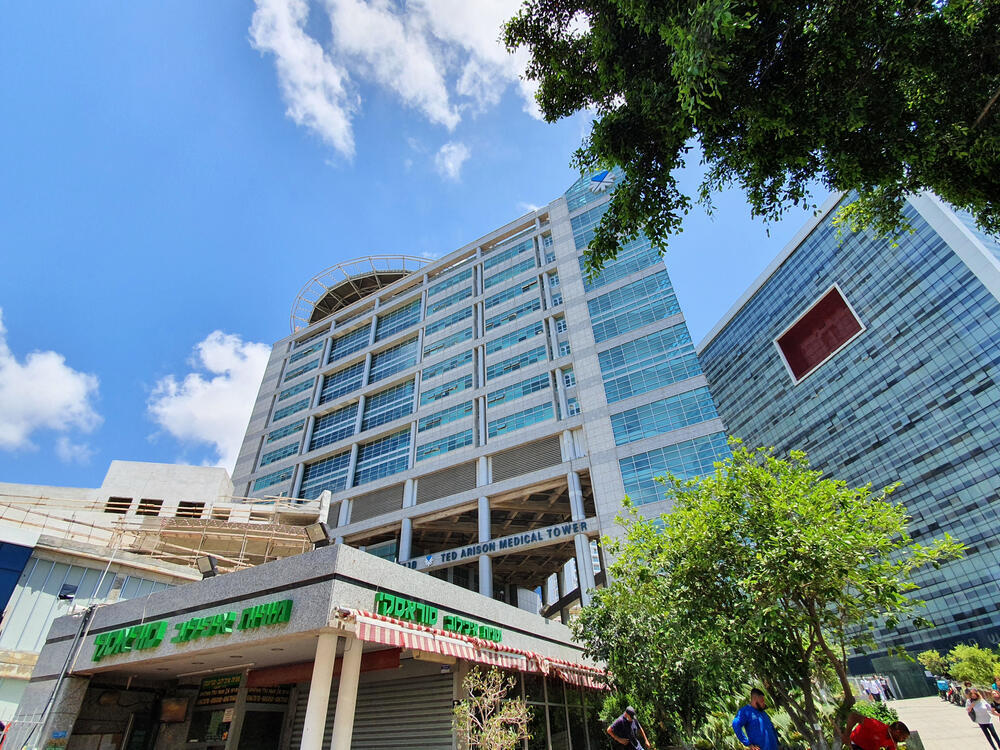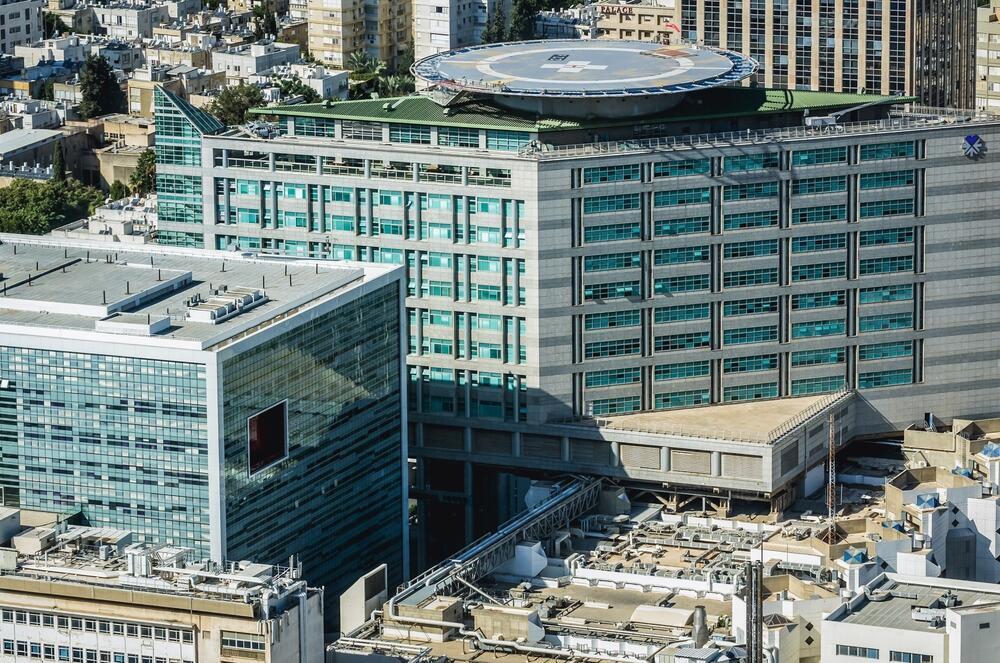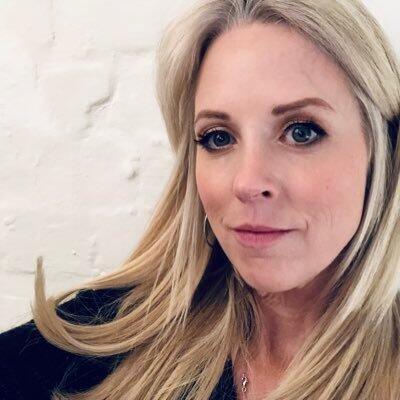Getting your Trinity Audio player ready...
When helicopters hover above central Tel Aviv, it occasionally signals something joyful: the release of hostages. After macabre handovers by masked terrorists, Israeli captives freed by Hamas are airlifted to the city, where they receive specialist care at some of Israel's finest hospitals.
The story of how Isabel Oakeshott, a British journalist and columnist for the Telegraph, ended up in one of these medical facilities does not involve any war reporting heroics. As she herself wrote: "The tale of how I too ended up in one of these medical facilities does not, unfortunately, feature any war reporting heroics. Embarrassingly, it involves falling off an e-scooter – a nasty accident that nonetheless provided a taste of world-leading health care."
The accident happened at dusk while Oakeshott, 50, was cruising along Tel Aviv’s beach promenade at 15 mph, admiring the scenery. She described the scene vividly: "On the shores of the Mediterranean, bronzed twentysomethings played beach volleyball, while athletic types jogged along the boardwalk. The vista was all golden sand and golden bodies. As the sun set, the sky slowly turned the color of a pale pink English rose. Speeding along alone, I felt at one with the world."
But the idyllic ride soon took a turn for the worse. "Suddenly, the wind whipped off my cap, sending it sailing into the sky like a little beige kite. Next thing I knew, I was spread-eagled on the pavement, seeing stars. Perhaps I hit a bump as I turned to look at my disappearing hat, or just somehow lost my balance. Either way, I flew over the handlebars, landing hard. While my jaw and chin hit the pavement, the rest of me smacked onto the scooter’s jack-knifed chassis."
Two kind passersby helped her stagger to a bench, where she attempted to assess her injuries. "I had cut my chin and it wouldn’t stop bleeding, but everything else seemed broadly present and correct. I certainly didn’t think I was a hospital job."
However, back at her hotel, her symptoms worsened. "I was ghostly white, and developing a splitting headache. By now night had fallen and I was alone in a city I do not know with only a handful of shekels in my pocket and not a word of Hebrew. I really, really didn’t want to go to hospital, but the more I Googled, the more frightened I became."
Recalling the tragic case of actress Natasha Richardson, who died after an apparently minor fall, Oakeshott began to panic. "What if I too was having what doctors call a ‘lucid interval’ – a brief period without any symptoms of a life-threatening head injury? How could I risk falling asleep?" With no other choice, she decided to make her way to Tel Aviv Sourasky Medical Center (Ichilov hospital), a state-of-the-art facility.
At Sourasky Medical Center, Oakeshott quickly realized she was in capable hands. "No wretched NHS-style 12-hour waits here. Just expert attention in literally minutes." However, she noted that overseas visitors are required to pay upfront. "For an upfront fee of around £250, I would be thoroughly checked. It’s an eminently sensible policy that spares the Israeli taxpayer from picking up the tab for tourists who can’t or won’t cough up. (By contrast, the NHS tends to treat foreigners first, and ask nicely for cash second: a very expensive approach.)"
In the admissions area, she observed: "I noted the eclectic mix of ailments and injuries characteristic of all A&E departments: frail folk in wheelchairs; anxious mothers nursing sick children; sheepish looking students post misadventures. Among those waiting was the odd IDF soldier. That is where the similarities with NHS Accident and Emergency services ended. Nobody was lying on trolleys in the corridor; no ambulances backed up outside, unable to drop off patients due to lack of beds or staff; no police officers required to maintain order. The atmosphere was totally calm."
Within less than an hour, she was seen by a cheerful Polish surgeon. "He took a very good look at me; glued the gash on my chin and listened patiently as I fretted about Richardson. Blood tests were taken; results returned in less than an hour. My prognosis? Fine."
Although Oakeshott had originally come to Israel to learn about the country’s defense industries and visit the Technion, she acknowledged that the accident shifted her perspective. "Happily, I was still able to do all this, but the accident shifted my focus onto Israel’s widely admired health care system. The contrast with the NHS was too glaring to ignore."
Get the Ynetnews app on your smartphone: Google Play: https://bit.ly/4eJ37pE | Apple App Store: https://bit.ly/3ZL7iNv
She was impressed by the efficiency of Israel’s health care system, which is based on mandatory health insurance with not-for-profit providers. "By both efficiency and outcome, it ranks among the best in the world – as I can attest. By 10 p.m. I was back in my hotel room, shocked, sore and feeling very stupid. I had been at the hospital for less than two hours. (In the UK, some 5,700 patients a day are forced to wait more than 12 hours to be seen at A&E.)"
Oakeshott also highlighted the advanced technology used at Sourasky Medical Center. "Sourasky uses all manner of time- and life-saving devices and AI wizardry to get patients through and out fast. For example, those who can are encouraged to speed up the initial admissions process by using simple self-service devices to provide their vital signs. Robots buzz around providing directions and other helpful information. In quiet moments, staff amuse themselves testing the AI: seeing if it understands slang (it does) and can tell the difference between male and female voices (it can)."
Reflecting on her experience, Oakeshott suggested that the NHS could learn valuable lessons from Israel’s health care system. And as for her own lessons? "A month after the debacle, my bruises have finally gone and I’m back on e-scooters. These days though, I’m considerably less cocky – and never wear hats that might fly off."




